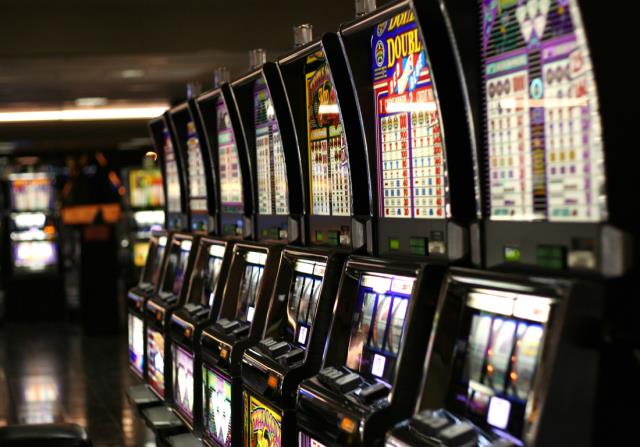By Sahar Foladi
City of Greater Dandenong and other councils grappling with the worst pokies losses in the state have united in an urgent plea for gambling reforms.
The council has signed a joint letter to Premier Daniel Andrews along with six other municipalities – Hume, Monash, Whittlesea, Darebin, Casey and Wyndham – to demand mandatory cashless precomitment cards and tough laws to reduce the billions of dollars lost each year.
The letter urged the State Government to follow NSW and Tasmania both of which have announced similar reforms.
$102 million was lost to 924 electronic gaming machines at 14 clubs and pubs in Greater Dandenong in 2021-’22.
This is the second highest rate of gambling losses per adult in Victoria, twice the state average and equates to the cost of feeding 39,000 children for an entire year.
More recently, losses to electronic gaming machines surged after the Covid lockdowns rising last year by $10 million and projected to increase to $120 million in 2022-’23.
Greater Dandenong community services acting director Marcus Forster said, “For Council the key challenge is resistance by the state and federal governments to any reforms that would lower gambling losses, as the burden and accompanying tax revenue for our community continues to increase.
“Shorter venue opening hours, less gambling advertising and a ban on donations by the gambling industry to political parties are also topics we continue to advocate for, in collaboration often with the Alliance for Gambling Reform (of which Council is a founding and financial member).”
Furthermore, the council advocates for reforms such as lower bet limits on electronic gaming machines, reduced caps and limits on machine numbers.
City of Greater Dandenong is one of the most disadvantaged and low socio-economic ranking municipalities with 12 per cent of residents on Health Care cards in June 2020 making it the third highest dependency.
“Greater Dandenong is a community with the lowest income levels in metropolitan Melbourne, which results in lower standards of living for families already struggling to sometimes make their rent and provide adequate food,” Mr Forster said.
“Family conflict and violence can increase with these pressures and sometimes homelessness is the ultimate result for some families.
“As most gambling losses are incurred by lower income earners, these burdens are felt largely by those least able to bear them.”
Noble Park RSL manager Mark Wilkinson said mandatory pre-commitment cards are “inevitable the way its heading.”
“I think there’s going to be tighter controls as we get to cashless gaming,” Mr Wilkinson said.
He also mentioned that the voluntary YourPlay tool is there for customers if they want to embrace it.
“The situation is that it’s based around the actual patron’s involvement. We’re pretty much the same as others. We don’t see a lot of activity in that area.
“That’s the future of it. We’ve got to comply with the legislation and we’ll do that.”
A Victorian Government spokesperson said, “Victoria was the first state to provide people the power to track and limit their betting on any electronic gaming machine through the state-wide pre-commitment system, YourPlay.
“We have accepted all recommendations from the YourPlay evaluation report to strengthen the YourPlay scheme, with all recommendations actively underway or delivered.
“We note the various motions moved by respective councils. We will continue to monitor the arrangements for hotels and clubs across the state to ensure we have the appropriate regulatory settings and reserve the right to make further changes.”
The YourPlay pre-commitment tool is voluntary and free for players to use to keep track of their time or money spent gambling.
Commencing in December 2015, it became mandatory for gaming venues to make YourPlay available in every venue across Victoria.
Greater Dandenong Council stated it would continue to educate and inform residents of the hazards of gambling and sources of support available to them locally.
“Community initiatives such as alternative recreation and social outlets are regularly promoted and we continue to oppose applications for more electronic gaming machines in vulnerable locations within Greater Dandenong,” Mr Forster said.
According to Australian Institute of Family Services (AIFS), culturally and linguistically diverse communities (CALD) participate in gambling less than the overall population of Australia.
However, if they do gamble they’ll be at a higher risk of developing problems ‘due to different beliefs about luck and chance, factors related to migration and issues around stigma and shame.
This places Greater Dandenong in a vulnerable position as one of Australia’s most culturally diverse localities with residents from 157 different birthplaces and one of the top municipalities for refugees.
“Council hopes that state and federal governments are responsive to our ongoing advocacy efforts made on behalf of our Greater Dandenong community, whom are very vulnerable to gambling harm,” Mr Forster said.







